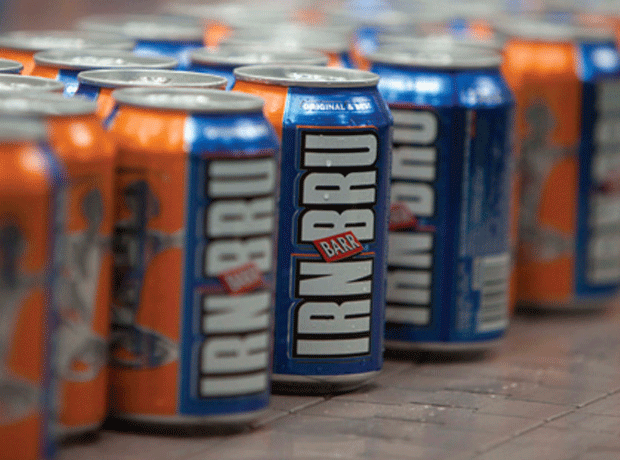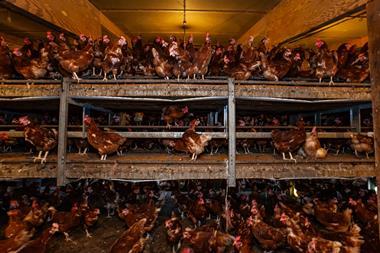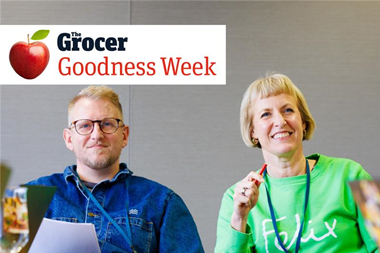A surprising swoop by a smaller player on a giant bruised by the Fruit Shoot recall? Or a logical merger that’s a win win for both?
From the outside, the AG Barr-initiated merger talks with Britvic looks like an opportunistic swoop by the Scottish maker of Irn-Bru on its beleaguered soft drinks rival south of the border.
With the Fruit Shoot product recall in July resulting in a 20%+ slump in Britvic’s share price, the terms as they stand favour AG Barr on many levels: its acclaimed CEO Roger White would be in charge of the new group and leave shareholders with a 37% stake, when its share of operating profits is only 25% and contribution to turnover a mere 15%.
However, a source close to the deal says AG Barr had been in talks long before the Fruit Shoot débâcle. “The Fruit Shoot banana skin coincided with the talks rather than having been a factor. It was only relevant in giving pause for thought.”
So if the merger of the companies was on the agenda for some time, what are the reasons for it and why would Britvic shareholders agree to it if, as it appears, the benefits are more firmly on the AG Barr side?
The most obvious point is that a merger would deliver cost synergies of up to £60m, according to analysts.
As the smaller player, AG Barr has the most to gain on that score. It also stands to benefit from Britvic’s wider international exposure. While Irn-Bru is manufactured in Russia, and brewed under licence in the US and Canada, distribution is limited, says Panmure analyst Damian McNeela.
However, Britvic arguably gets at least as much in return, justifying why its shareholders would hold only a 63% share of the combined company when it generates 75% of the profits and 85% of the revenue.
Canaccord Genuity analyst Wayne Brown, who describes the provisional merger terms as “very fair to both parties”, says the quality of the AG Barr earnings is higher, coming largely from its own brands like Irn-Bru - unlike Britvic, which relies heavily on the brands it makes under licence from PepsiCo.
Also, Britvic stands to gain a better-looking balance sheet. Having racked up debt of 3.2 x EBITDA, Brown says Britvic is perilously close to breaking its banking covenants of 3.5 x net debt/EBITDA. Merging with AG Barr would reduce the ratio to 2.4 x EBITDA, taking Britvic well out of the danger zone. “Britvic’s debt situation does mean it potentially has more to lose if the merger doesn’t go through,” says Brown.
Longer term, Britvic stands to benefit from AG Barr CEO Roger White at the helm. The highly rated MD - a former RHM executive, and the first ever boss from outside the family - has won praise for his contrasting attitude to debt, for his track record on acquisitions, notably the success of the Rubicon takeover, and organic growth. “Roger White will be a great CEO of the combined company - he is one of the most capable I’ve come across,” says one City source.
McNeela adds that current Britvic CEO Paul Moody has a less impressive recent record, attracting criticism for failing to protect margins from cost hikes in 2011, for the disappointing launch of Robinsons Double Concentrate, for the handling of acquisitions in Ireland and France and, most recently, the Fruit Shoot recall.
The merger of AG Barr and Britvic is therefore a tantalising one, widely regarded as a win-win. And with the key terms agreed, no outstanding financing issues, the approval of PepsiCo likely (otherwise, would Britvic and AG Barr have gone public about the talks?) and a lack of competition issues (the combined company would still have a smaller market share in the UK than Coca-Cola), there is little to stand in the way of a successful deal.



















No comments yet